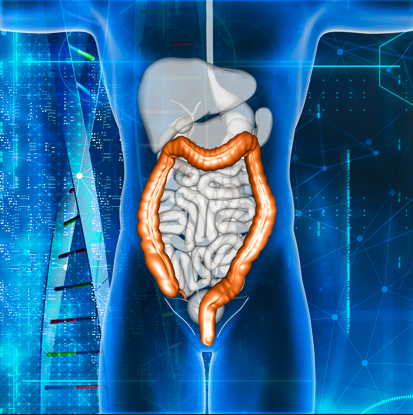Introduction: The Key to Feeling Fantastic Begins with Gut Health
Ever felt that queasy bloated sensation after a meal, or had digestive discomfort like gas, constipation, or even breakouts on your skin? You’re not alone. We’ve all experienced some form of digestive problem at some time or another, but here’s the thing: many of those issues can be easily corrected or alleviated by paying attention to something that’s far too easy to ignore, your gut health.
The truth is, our gut health plays a crucial role in everything from digestion to immune function, and even our mental well-being. It’s the cornerstone of our overall health, yet it often gets neglected in the rush of daily life. If you’ve been feeling off, tired, or have digestive discomfort, improving your gut health naturally could be the key to feeling better and achieving a balanced life.
Here, we are going to discuss easy and implementable tips on how you can naturally improve your gut health. By making a few easy changes in your diet, lifestyle, and habits, you can restore your gut microbiome and feel wonderful.
Understanding Gut Health: Why It Matters
Now that we have that established, let’s talk about strategies real fast before we get into them. Firstly, let’s just remember why gut health is so important. Our gut contains trillions of bacteria and other microbes that make up what’s referred to as the gut microbiome. The microbiome performs the following:
Digestion: Helping break down food and absorb nutrients.
Immune Function: Protecting against harmful disease and pathogens.
Mental Health: Producing neurotransmitters that affect mood and brain function.
If there is an imbalance of good and bad bacteria in the gut, it can lead to various issues such as constipation, bloating, fatigue, or more serious diseases like irritable bowel syndrome (IBS). Fortunately, it is possible to regain this balance through natural means.
How to Improve Gut Health Naturally
Now, let’s dive into the natural ways you can market your gut health. These are simple-to-implement, actionable steps that you can put into action immediately!
1. Eat a Variety of Foods
Diversity is the flavor of life when it comes to gut health. The more diverse your diet, the greater the diversity of bacteria your gut will harbor. A high-fiber diet comprising a variety of types of vegetables and fruits will feed the good bacteria in your gut.
Fiber Foods: Include foods like whole grains, legumes, vegetables, and fruits in your diet. These are prebiotics that will feed the good bacteria in your gut.
Fermented Foods: Yogurt, kefir, kimchi, sauerkraut, and kombucha contain high levels of probiotics, which promote good bacteria in your gut.
Healthy Fats: Omega-3 fatty acids in fish (fatty fish like salmon and mackerel), walnuts, and flaxseeds offer anti-inflammatory benefits that might help to support gut health.
Tip: Cycle your foods so you’ve got lots of colors and variety. If you’re having bananas today, have apples or berries tomorrow. You want variety to keep different gut bacteria.
2. Add Probiotics
Probiotics are good bacteria that keep the gut microbiome healthy. They help keep the bad bacteria in check and promote better digestion. Foods that contain probiotics are:
- Yogurt (with live and active cultures)
- Kefir
- Miso soup
- Fermented vegetables like kimchi and sauerkraut
- Pickles (those fermented in brine, not vinegar
If you don’t enjoy fermented foods, you can also purchase high-quality probiotic supplements. However, it is always preferable to attempt to acquire food sources of probiotics, as they are likely to contain other gut-savory nutrients.
3. Prioritize Fiber
Fiber is also an important ingredient in gut health. Fiber provides a food source to beneficial gut bacteria and helps the process of digestion. There are two types of fiber:
Soluble Fiber: Soluble fiber dissolves in water and aids in controlling blood sugar levels. Oats, apples, and carrots contain soluble fiber.
Insoluble Fiber: This type doesn’t dissolve in water and helps move food through the digestive system. You’ll find it in foods like whole grains, seeds, and nuts.
A diet rich in both types of fiber promotes healthy gut bacteria and ensures proper digestion and regular bowel movements.
4. Hydrate, Hydrate, Hydrate

Staying hydrated is essential for all bodily functions, including gut health. Water helps break down food and absorb nutrients, and it also keeps the mucosal lining of the intestines hydrated, making it easier for food to pass through.
Aim for at least 8 cups of water per day or more if you’re active. Herbal teas like peppermint or ginger tea can also soothe the digestive tract.
5. Manage Stress
Did you know that your gut and your brain are connected through the “gut-brain axis”? That is, your mental health might have a direct effect on your gut health. Stress, depression, and anxiety can throw gut bacteria out of balance and might lead to gastrointestinal upset in the form of diarrhea or bloating.
To decrease stress and improve your gut health, you might do the following:
- Mindfulness or meditation
- Exercise on a regular basis
- Deep breathing exercises
- Good sleep
Tip: Deep breathing for even 10 minutes every day can excite the parasympathetic nervous system, which will relax the gut and help digest food more efficiently.
6. Sleep Well
And then there’s sleep, which is actually very important for the gut. During the night, your body heals and renews cells, including cells within your digestive tract. Not sleeping can lead to gut imbalances and digestive issues.
Sleep for 7-9 hours of good quality sleep at night. If you struggle to sleep, try establishing a bedtime routine that will signal to your body that it is time to unwind.
Foods to Limit or Avoid for Optimal Gut Health
While we have been talking about foods good for gut health, there are a few that are bad for you. There are some foods to limit and avoid:
Processed foods: They contain excessive amounts of unhealthy fats, sugar, and preservatives that disrupt the gut microbiome.
Excessive alcohol consumption: Drinking too much alcohol can harm beneficial gut bacteria and lead to leaky gut syndrome.
Artificial sweeteners: Artificial sweeteners have been implicated by some studies as altering gut bacteria and thus leading to gastrointestinal issues.
Conclusion: Small Steps, Big Rewards for Gut Health
Improving your gut health naturally doesn’t require drastic changes, it’s all about making simple, sustainable adjustments to your diet and lifestyle. By eating a variety of fiber-rich foods, incorporating probiotics, staying hydrated, managing stress, and getting enough sleep, you’ll be on your way to a healthier gut in no time.
Keep in mind that your digestive health is the foundation for your overall health, so taking care of it is one of the greatest investments you can make in your long-term well-being.
If you’re willing to show your gut some love it deserves, start with one or two of these tips today and build from there. You’ll be thankful you did.
FAQs:
1. How long does it take to have improved gut health?
Improvement in gut health takes time. You may see some changes in a few days or weeks, but for optimal changes to last, it could take a few months. Be patient!
2. Does stress affect gut health?
Yes, stress can disrupt the balance of bacteria in your gut and lead to digestive problems. Managing stress by doing things like yoga, deep breathing, and meditation can really improve your gut health.
3. Should I take probiotic supplements?
Though probiotic supplements are helpful, it’s generally best to get probiotics from foods like yogurt, kimchi, and kefir. Take supplements only if necessary, though, always with your healthcare provider’s okay.
How long does it take to have improved gut health?
Improvement in gut health takes time. You may see some changes in a few days or weeks, but for optimal changes to last, it could take a few months. Be patient!
Does stress affect gut health?
Yes, stress can disrupt the balance of bacteria in your gut and lead to digestive problems. Managing stress by doing things like yoga, deep breathing, and meditation can really improve your gut health.
Should I take probiotic supplements?
Though probiotic supplements are helpful, it’s generally best to get probiotics from foods like yogurt, kimchi, and kefir. Take supplements only if necessary, though, always with your healthcare provider’s okay.

